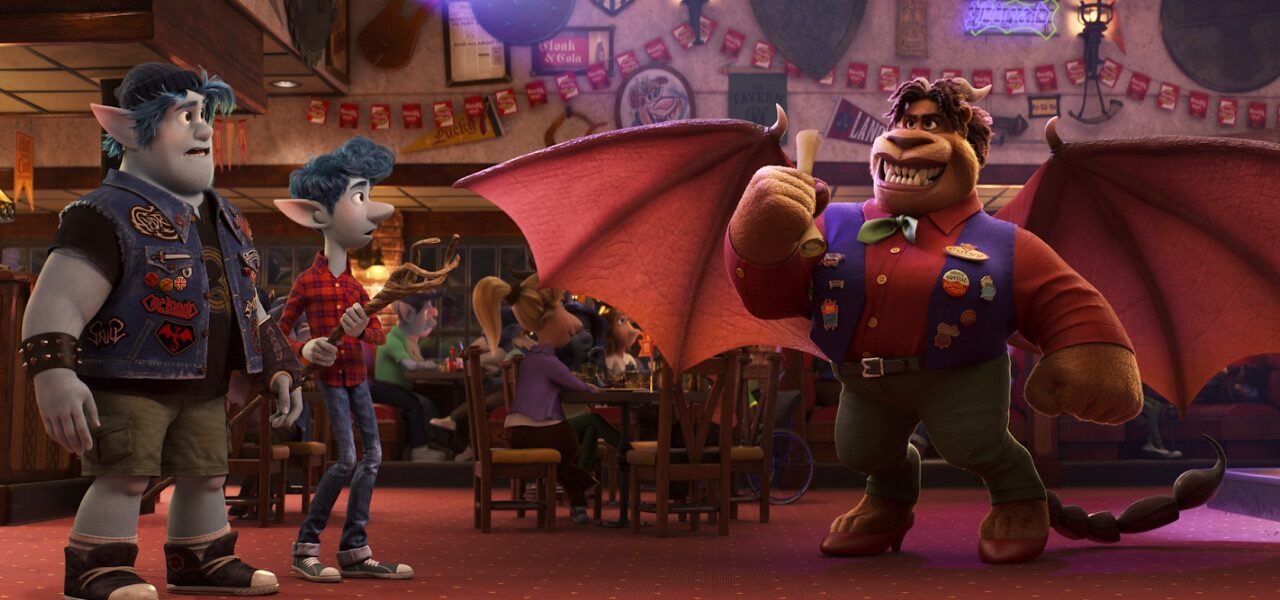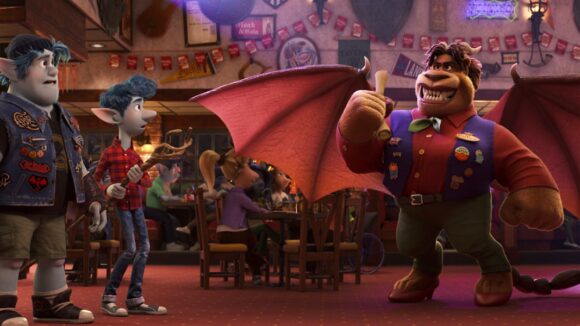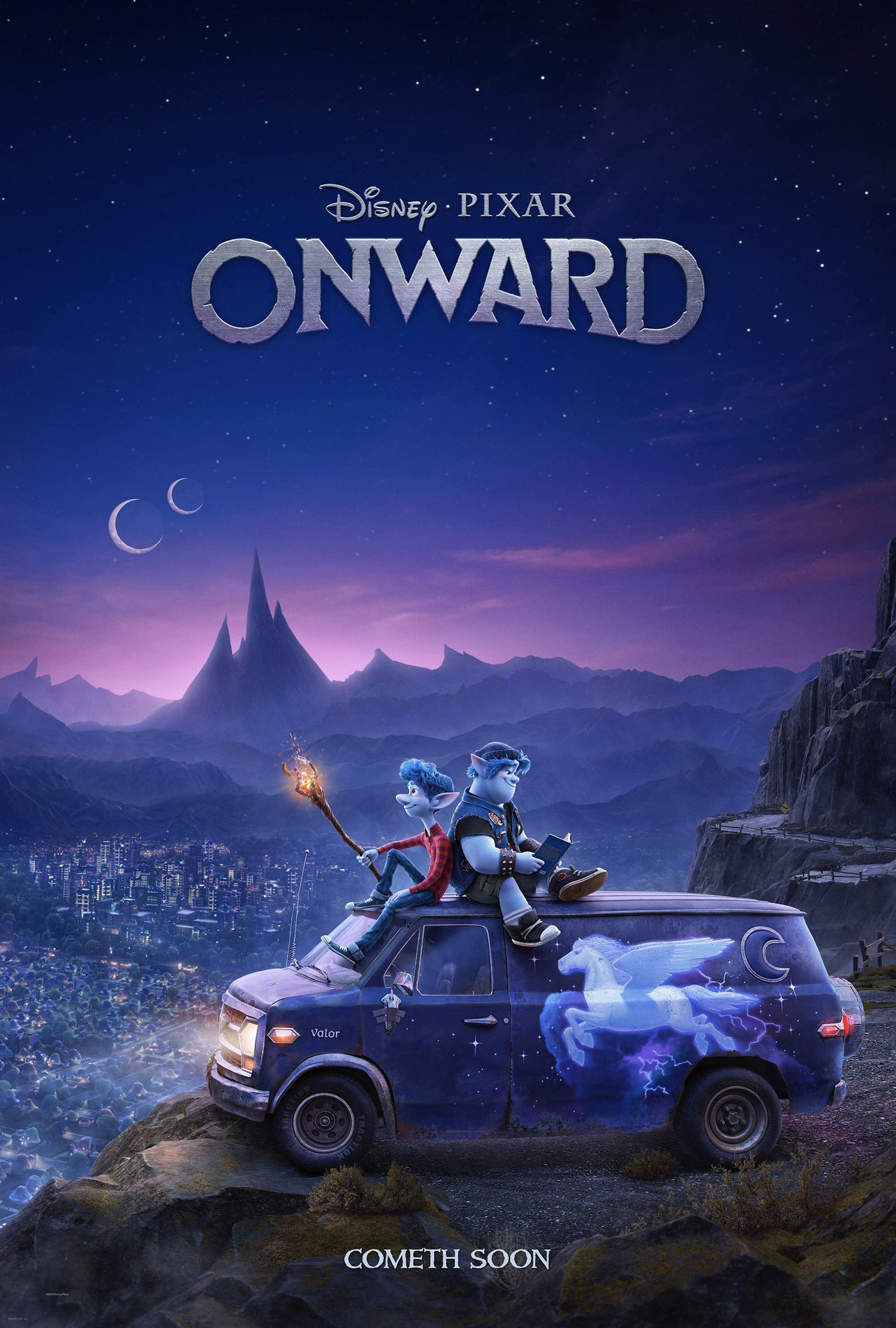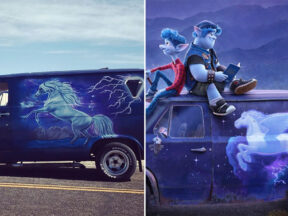

‘Onward,’ Pixar’s First Original Feature Since 2017, Set To Open With $40–$50M
Disney bestrode the 2019 box office like Hulk, churning out mega-profile sequels and remakes whose combined success had some talking of monopoly. Its theatrical slate for 2020 is a little more low-key, with an emphasis on original stories. Exhibit A: Pixar’s Onward, which hits theaters today.
The film, Pixar’s first original feature since 2017’s Coco, is projected to open anywhere from $40 million (the lower end of Variety’s projections) to upward of $50 million (according to Deadline), from 4,310 domestic screens. That figure would place it at the top of the weekend box office, but near the bottom of Pixar’s all-time rankings.
Only three of its films have opened with less, two of which — Toy Story ($29.1 million) and A Bug’s Life ($33.3 million) — were its very first two releases. The third, 2015’s The Good Dinosaur ($39.2 million), was a relative critical misfire for the studio. It’s worth noting that this is the first Pixar release in March, as all its previous features came out in early summer or November.
Onward has a few factors in its favor. The voice cast is led by Chris Pratt and Tom Holland, two stalwarts of the Marvel Cinematic Universe who may draw fans of that franchise to the cinema. The film opens in a fairly quiet patch for family fare; the only real competition on the horizon is Disney’s own Mulan remake, which comes out on March 27. At the time of writing, Onward holds an 86% rating on Rotten Tomatoes — a decent if not exceptional score.
Counting against it, in commercial terms, is the fact that it isn’t a franchise flick. Then there’s the enduring threat of the coronavirus, which has blocked off the sizeable Chinese market for the time being. Disney has also delayed the film’s release in Italy and South Korea owing to fears about the spread of the disease. There are jitters in other markets where Onward opens today, such as France, where some theaters have closed. The film is tracking at a global opening weekend of $90–$105 million (including North America).
The film, which follows two teenage elf brothers on a question to discover “if there is still a little magic left out there,” has a strong autobiographical streak: it was inspired by director Dan Scanlon’s relationship with his brother and the fact that they lost their father at a young age. When the project was first announced a couple years ago, Scanlon spoke about how the central theme was rooted around a question he’d always asked: who was my father? He added:
In the film, we’re going to tell the story of two teenage elf brothers whose father died when they were too young to remember him. But thanks to the little magic still left in the world, the boys embark on a quest that will allow them a chance to spend one last magical day with their father.
Pratt and Holland star as the elves Ian and Barley Lightfoot, with Julia Louis-Dreyfus as their mom. Octavia Spencer voices the Manticore, a helpful creature who will aid the brothers on their journey. The film is produced by Kori Rae, who previously worked with Scanlon on the 2013 prequel Monsters University, and executive-produced by Pete Docter. Becky Neiman-Cobb is the associate producer.
Scanlon wrote the screenplay with Jason Headley and Keith Bunin. Michael Stocker and Rob Duquette Thompson are heads of animation, Kelsey Mann is head of story, and Noah Klocek is production designer. The music is by Jeff Danna and Mychael Danna.
Onward premiered at the Berlinale festival last month. Here’s what the critics are saying:
The Guardian calls it Pixar’s best film in years, with critic Steve Rose praising the treatment of its core theme:
Rather than offering trite homilies, Onward feels sincere and specific, and all the better for it… You could argue that there’s little here for girls and women — although there are supporting roles for the boys’ mother (Julia Louis-Dreyfus) and Octavia Spencer’s crisis-stricken manticore (a winged lion/dragon/scorpion creature). But while these kinds of relationships are often dealt with in female-led fairytales, for male characters this is still relatively under-explored territory. Beneath the bro-friendly, fantasy-art trappings, Onward finds a little bit of that old Pixar magic.
David Sims celebrates Pixar’s return to original storytelling in The Atlantic:
Too often of late, [Pixar] has favored those easy follow-ups to its established brands, producing only four original works (compared with seven sequels or prequels) in the past decade. Onward is the kind of movie the studio should be focusing on: an inventive, sweet, and small-scale story that still shows off the usual Pixar hallmarks. There’s some nifty world-building, unabashed sentimentality, and a keen understanding of tone, with an ending alchemically designed to provoke tears from parents and kids alike.
Kristen Page-Kirby gives the film three stars in The Washington Post, and points out that it’s being held to very high standards:
Look, Onward isn’t even close to top-shelf Pixar. But judging it on its own merits, it’s an often funny, genuinely moving story that takes enough twists along the way that the quest becomes a suspenseful journey… Onward’s biggest handicap may, ironically, be its pedigree, which means that it will inevitably be compared with some of the greatest animated films — some of the greatest films, period — of modern cinema.
Vulture’s Bilge Ebiri finds little to love in the film, which gave him a sense of déjà vu:
In a world where we hadn’t had fantasy epics and hero’s journey clichés rammed down our cinematic gullets for the past 20 or so years, Onward might have felt fresher, its sentimentality tempered by an offbeat obsession with magic and chivalry and myth. But as it currently stands, this film feels like a pile of prefab story ideas occasionally enlivened by brief flashes of earnestness and invention.
Writing in Little White Lies, Hannah Woodhead agrees that there’s little fresh material here:
Even visually the film is less inventive than the studio’s earlier output; outside of their SparkShorts division, it seems they are no longer interested in pushing the boundaries of the medium. A new Pixar film used to feel like an event, something worth turning up for. As the Disney monolith grows larger, it seems strange that they should be resisting the creative innovation that made their name.





